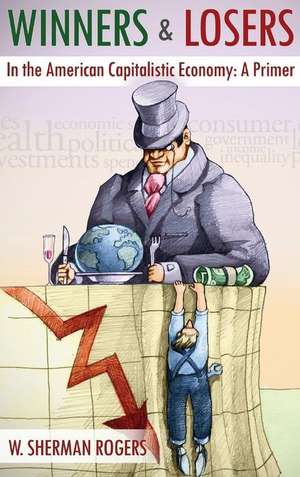Winners and Losers in the American Capitalistic Economy
Autor W. Sherman Rogersen Limba Engleză Hardback – 15 iun 2016
Preț: 351.75 lei
Nou
Puncte Express: 528
Preț estimativ în valută:
67.31€ • 70.53$ • 55.64£
67.31€ • 70.53$ • 55.64£
Carte disponibilă
Livrare economică 22 martie-05 aprilie
Preluare comenzi: 021 569.72.76
Specificații
ISBN-13: 9780692665343
ISBN-10: 069266534X
Pagini: 508
Dimensiuni: 161 x 240 x 32 mm
Greutate: 0.89 kg
Editura: Colmar Publishing
ISBN-10: 069266534X
Pagini: 508
Dimensiuni: 161 x 240 x 32 mm
Greutate: 0.89 kg
Editura: Colmar Publishing
Notă biografică
Professor W. Sherman Rogers is professor of law at the Howard University School of Law School in Washington, D.C. Professor Rogers is licensed to practice law in state and federal courts, including the U.S. Supreme Court. He is also a registered stockbroker and general securities principal, and has life and health insurance licenses. His multi-disciplined background as a law professor, practicing attorney, stockbroker, and life and health insurance agent has provided him with a great deal of practical and theoretical knowledge in the area of law, entrepreneurship, and economics.
